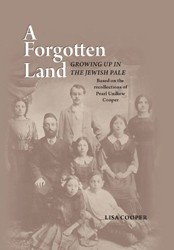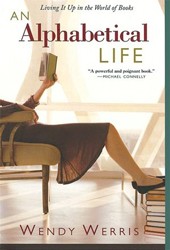This most certainly is a love story. It’s also a coming-of-age story, a family’s story, and a story of struggling through the unknown.
Judy Brown’s memoir instills her own voice and past in Menuchah. Menuchah is one of six children in an ultra-Orthodox Brooklyn family, and she tells her story with the earnestness, naivete, humor, and gentleness of a sheltered eight-year-old.
Menuchah’s parents have committed the horrible sin of falling in love and going against tradition by not having their match preordained in Heaven. Her mother is from a prestigious Hasidic dynasty and her father is a poor Israeli soldier. For this flagrancy, they are cursed by having a “crazy” son, Nachum. Nachum’s existence causes turmoil for the family, their home, and their lives, and his behavior — rages, head banging, lack of language, and destructive tendencies — take their toll. The parents argue, friends won’t come over, the household lives on the edge, havoc reigns, and “good” marriages will be almost impossible to arrange.
Menuchah constantly questions why they are cursed. Her life in this strict, insular, and proscribed world for young girls is full of misinformation, ignorance, prejudice, myths, and rumors. Her community is seen through her eyes as she is given incomprehensible reasons for Nachum’s affliction. She prays for a needed miracle and tries to bargain with God. If she fasts for forty days and forty nights, will Nachum be fixed?
This is the 1980s and ‘90s, when autism is not yet fully understood, diagnosed, or dealt with.
Readers will be absorbed and enveloped by this family and the descriptive flow of the story. Menuchah sharply captures and recounts memories of the angst of Nachum’s pizza fiasco, the love of a prized but hidden book of fairytales, interplay with girlfriends, Catskill bungalow summers, and vivid images of Jerusalem and Brooklyn neighborhoods.
Menuchah’s parents’ story is focused on her mother’s search, anguish, and prayers for a better life for Nachum. Esther won’t “put him away,” as many in the community urge her to do, though her husband and other children continue to suffer. A host of doctors and psychologists offer little hope, and, disheartened, she finally sends him to Israel to live with her sister’s family. There she finds a Jerusalem school and psychologist who can work with him. Esther leaves her family many times a year, laden with expensive and guilt=assuaging gifts, to be with Nachum.
It is a long process, but Nachum slowly learns language, appropriate behaviors, and can listen, hear, speak, and connect with people in limited ways. Menuchah spends a summer with Nachum when she is thirteen and they establish an emotional brother-sister bond she never thought possible when she wished him away years before. Their relationship continues and there is a hopeful and upbeat ending.
Brown provides excellent and understandable explanations and discussions of autism in documenting how a special-needs child affects the coping mechanisms of each member of a family.
Renita Last is a member of the Nassau Region of Hadassah’s Executive Board. She has coordinated the Film Forum Series for the Region and served as Programming and Health Coordinators and as a member of the Advocacy Committee.
She has volunteered as a docent at the Holocaust Memorial and Tolerance Center of Nassau County teaching the all- important lessons of the Holocaust and tolerance. A retired teacher of the Gifted and Talented, she loves participating in book clubs and writing projects.




